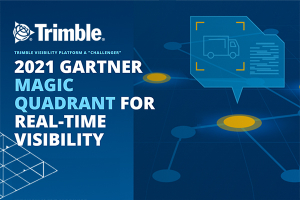Effectively Managing Big Data in Your Supply Chain
In this white paper, we’ll explain what the term “big data” means to the typical supply chain, introduce effective strategies for managing and leveraging that data, show how one grocer is using predictive analytics to harness its own big data, and explain the “first steps” that companies need to take down the path to effective management of their big data.
The need for good data management has increased as the volume of data has grown by astronomical leaps over the last few years.
And as variety and velocity of data have grown, the usefulness of traditional data warehousing strategies has decreased exponentially.
By 2025, research firm IDC believes, the total amount of digital data created by the world will reach 180 zettabytes, up from 4.4 zettabytes in 2013.
The astounding growth comes from both the number of devices generating data as well as the number of sensors in each device; there are approximately 11 billion devices connected to the Internet now.
The figure is expected to nearly triple to 30 billion by 2020 and then nearly triple again to 80 billion five years later.
5 Effective Data Management Strategies
For the single-location distribution firm that’s shipping goods locally to the midsized manufacturing firm that has locations across North America to the large, multinational firm whose products are used by consumers around the globe - and every company in between - the need for effective big data management is both real and pertinent.
Juggling terabytes of data while trying to run daily operations, put out fires, and forecast for the future has become extremely complicated.
Thankfully, the task is made easier by cloud-based applications that allow firms to connect in one place all of their transportation and logistics data, and then use that information to make better, forward-looking decisions.
“Shippers need one platform that acts as a central repository, and that captures data across multiple systems and providers,” said Dan Clark, founder and president of Kuebix, whose platform allows users to effectively analyze transportation costs, generate scorecards on carrier performance, and manage their businesses based on a wide range of intelligence and reports.
In assessing the various ways that shippers are already using software platforms to streamline the big data management process, Clark breaks the overall picture down into five distinct categories. They are:
- Connect all business partners on a single, integrated, cloud-based platform.
- Leverage the data to improve global logistics planning.
- Break down information silos and gain real-time visibility across the supply chain.
- Optimize internal processes using regular audits.
- Carry your best decisions forward while eradicating any bad habits or poor decision-making.
“When you have the historical information at your fingertips,” says Clark, “you can better plan for events and leverage the business intelligence to improve your service and your bottom line” - Take action now and ensure success in the future.
What’s Related




Favorites





